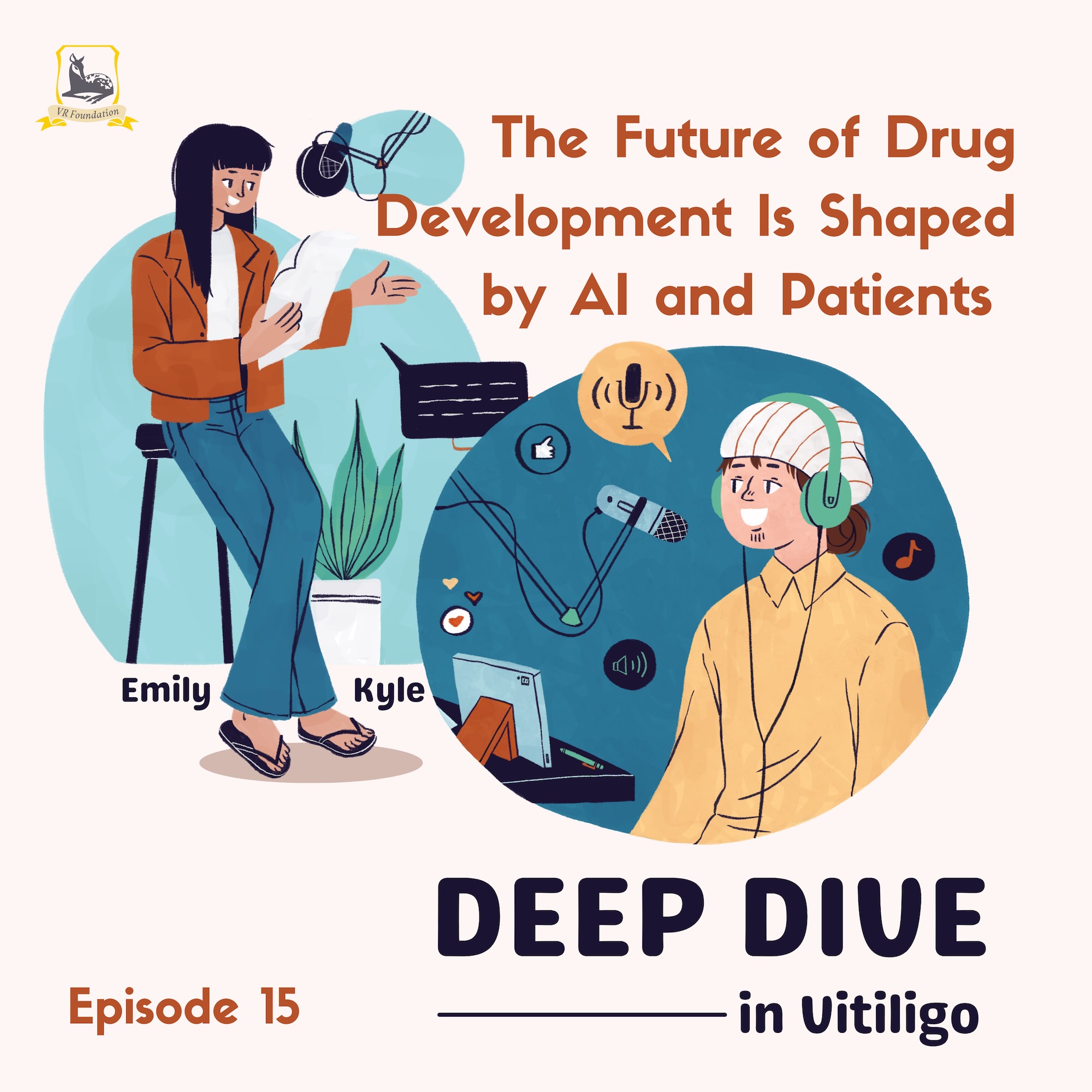Our work is entirely funded by private donations – we receive no money from government. Your money will help us continue funding research into vitiligo and supporting people affected by the condition.
Podcast
Inside Pharma: How AI and Patient Advocacy Are Shaping the Future of Drug Development (Ep. 15)
In this episode, we uncover the strategies and innovations behind recent pharmaceutical breakthroughs. Despite intense competition and the shifting landscape of Medicare Part D, Incyte continues to lead with strategic maneuvers and a patient-centered approach. We’ll delve deeper into Opzelura, an FDA-approved treatment for AD and vitiligo, shedding light on the financial and emotional burdens of these conditions and the high stakes of drug development.
Explore the future of pharmaceuticals as we discuss how model-informed drug development (MIDD), powered by AI and predictive simulations, is transforming the testing process, making it faster and safer. We also highlight the role of patient advocacy groups in shaping the drug pricing landscape, ensuring real-world voices are heard in industry decisions. This episode provides a deep dive into the business, science, and human impact of modern pharmaceuticals, offering a fresh perspective on the challenges and promises that lie ahead.
OVERVIEW
(0:00:00) - The World of Pharmaceuticals
In this segment, we dive into Incyte's success with Jakafi, exploring how they’ve navigated competition and Medicare changes to reach over a billion in quarterly revenue. We also look at their latest product, Opzelura, and discuss the profound emotional and financial tolls of conditions like vitiligo, eczema and atopic dermatitis.
(0:08:47) - Innovations in Drug Development and Patient Advocacy
Here, we explore the potential of AI-driven model-informed drug development (MIDD) to revolutionize drug testing. We also highlight the role of patient advocacy groups in shaping the drug pricing landscape, ensuring real-world voices are heard in industry decisions

FAQOther Questions
- What tests for vitiligo should be done?
Before starting vitiligo therapy, several tests may be recommended to ensure an accurate diagnosis and appropriate treatment plan: Physical Examination A thorough physical exa...
- Any link between vitiligo and military service?
While there isn't specific research directly linking military service to the onset of vitiligo, it's critical to comprehend that vitiligo is a multifaceted disorder influenced b...
- What's better: laser or phototherapy?
Laser therapy is actually a type of phototherapy. Both rely on light to trigger changes in the skin, but they work differently. Phototherapy usually means a narrow-band UV (NB-...
Though it is not always easy to treat vitiligo, there is much to be gained by clearly understanding the diagnosis, the future implications, treatment options and their outcomes.
Many people deal with vitiligo while remaining in the public eye, maintaining a positive outlook, and having a successful career.
Copyright (C) Bodolóczki JúliaBy taking a little time to fill in the anonymous questionnaire, you can help researchers better understand and fight vitiligo.